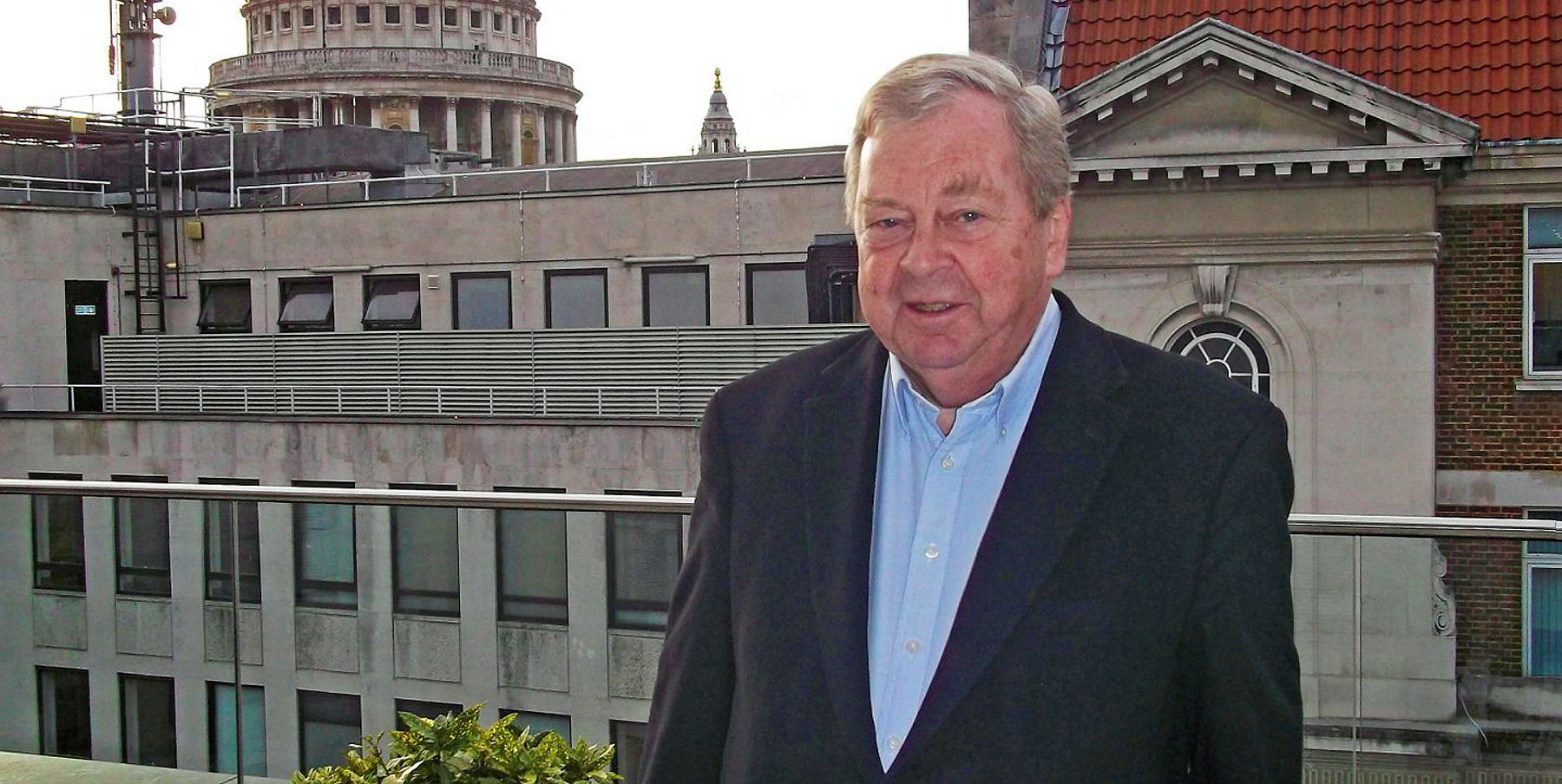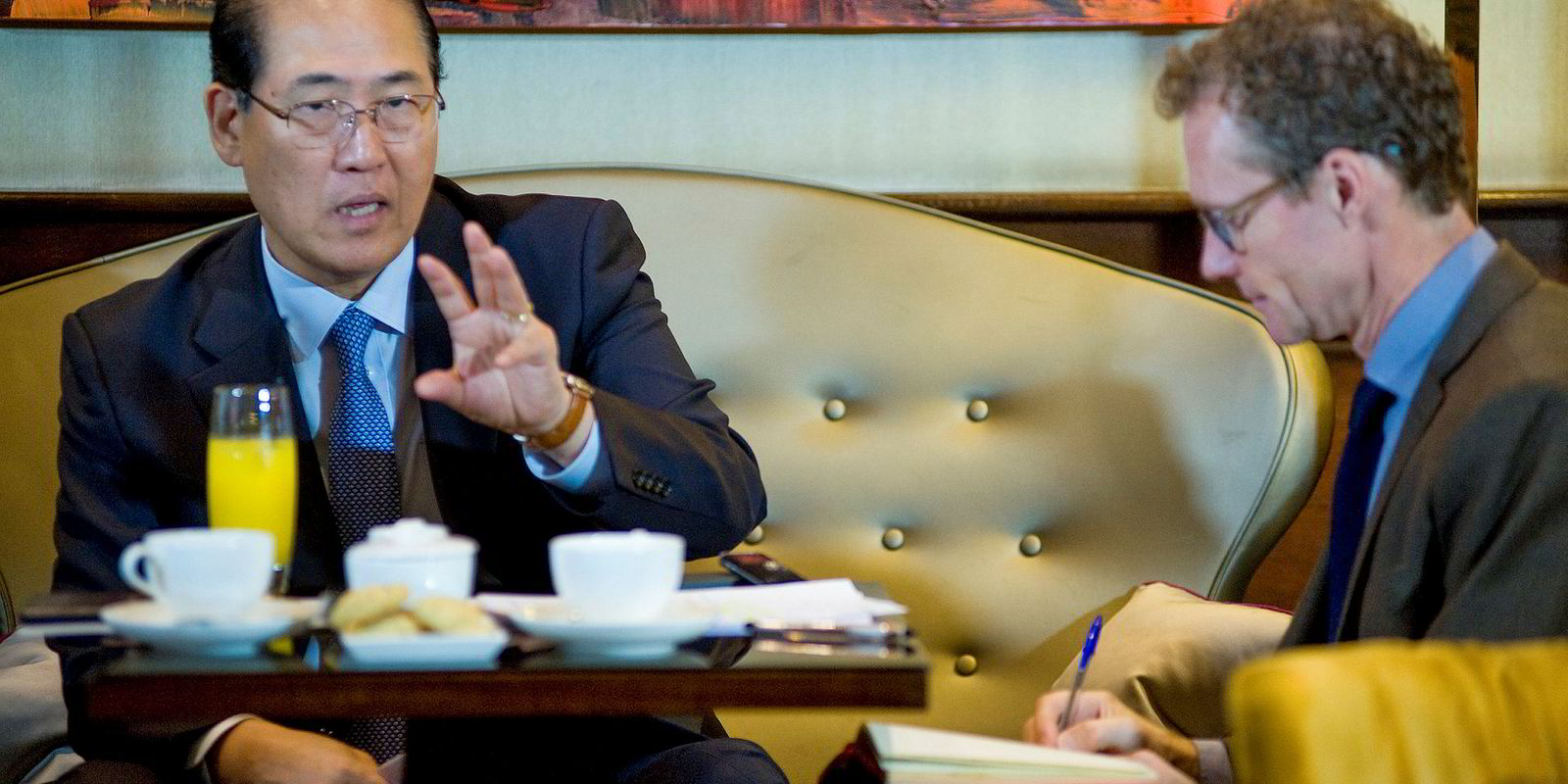Tanker shipping veteran and long-term proponent of wind propulsion Lars Carlsson is proposing a campaign to shift shipowners toward net zero emission status as the industry begins to get to grips with the IMO target for a 50% cut by 2050.
Carlsson, a former managing director of Concordia Maritime and chairman of Intertanko, wants the industry to set up a World Shipping Board within the IMO to lead a push towards net zero emissions.
Kitack Lim, the secretary general of IMO, has a lot of integrity, if he could just escape from half of his 200 country delegates’ votes in IMO
Lars Carlsson
The board, comprising up to 10 people, could “guide us through the coming years’ transition, with strong recommendations and executive power, by forcing authorities to legislate for immediate reduction of harmful emissions,” he argues in a letter to TradeWinds.
Carlsson, who is now a director at Windship Technology, suggests giving the board 100 votes at the IMO so it can propel legislation through the United Nations organisation for net zero emissions by 2040. Windship is a company developing wind sail rigs for bulkers and tankers aimed at cutting fuel use by 45%.
'Inexcusable delay'
“Kitack Lim, the secretary general of IMO, has a lot of integrity, if he could just escape from half of his 200 country delegates’ votes in IMO,” Carlsson writes.
“Net zero emissions in shipping can be achieved by a determined investment in carbon-neutral vessels. But any target of action as late as 2050 is an inexcusable delay, postponing necessary climate action to the next generation so that we in our generation can enjoy our life and our perks undisturbed by harsh realities,” he argues.
Carlsson suggests nominating teenage Swedish environmental activist Greta Thunberg and 93-year-old broadcaster and naturalist Sir David Attenborough as climate advisory chairs to the board with 50 votes each on climate issues.
Rising fuel costs can help generate savings for zero-emission vessels built in series that employ all known fuel-saving methods, including wind propulsion, lower speeds, design and operational optimisation and biofuels derived from waste, he says.
He also calls for new vessels to be built with anti-corrosion coated steel to give them a longer trading life of 50 years, a global fossil-fuel tax to encourage sustainable investment and the creation of a carbon exchange trading market.
Current ships that cannot be modified should be scrapped over the next 10 years, he adds.




